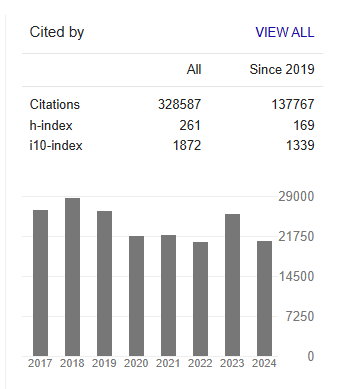Can the Present-Day Cosmology Really Make the Universe Understandable as a Sheer Physical System Operating as it must?
Abstract
Hans J. Fahr
The modern and present day cosmology starts from the main idea, that our universe had one common begin in the so-called "Big-Bang", and that the traces of this begin can be clearly extrapolated from the presently observable cosmic facts, which still now can be found in the universe. In addition one assumes, based on the "cosmologic principle" that no space point in this universe is privileged with respect to any others, rather this universe in its energy depositions and physical condi- tionings represents itself as a totally homogeneous building in which everywhere happens the same, i.e. for all space points the past, the presence and the future are identical in this universe - at least when studied on reasonably large space- and time- dimensions and when studied on such "reasonable" dimensions it is subject to a common and ubiquitously identical evolution, bringing up the same future simultaneously at all of its places [1-3].
In this article here, we shall subject this standard cosmologic view to an extended critical exam in order to expose its rational weaknesses and intellectual impudence’s. It will be shown that the upcoming fate of the present universe strongly depends on its present internal Hubble expansion dynamics and its internal cosmic ingredients, which influence this ex- pansion dynamics. Amongst these latter ingredients, one finds the mass content of the universe which by its gravitational attraction decelerates the cosmic expansion, and its opponent, the vacuum energy, that is seen as an enigmatic physical phenomenon which accelerates the cosmic expansion. We will show, however, that both these obviously essential cosmic ingredients are only poorly understood.
Especially this concerns the mysterious vacuum energy of which we demonstrate that acceleration of cosmic dynamics can only be connected with pressure, but if vacuum pressure accelerates the expansion of the universe and so does perform thermodynamic work, it then cannot be constant as once proposed by Einstein and thus as such taken for granted by [4]. In addition, the internal cosmic gravity as we show is only poorly understood especially what concerns the source of this internal gravity, which usually is ascribed to the mass content of the universe connected with the mean cosmic mass densi- ty. Just this latter quantity, however, is a highly problematic physical quantity as we intensively demonstrate in this article. Taking everything together it is therefore hard to feel safe in this "explained universe" which cosmologists presently are offering to the community as their understanding of how this cosmos works.



